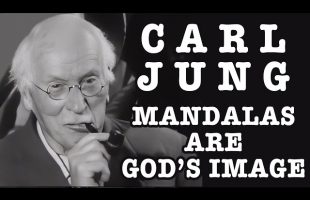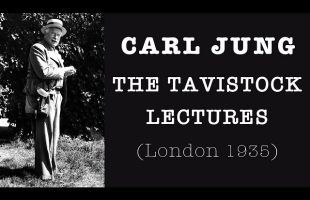Hello Brothers and Sisters!
In “The Holy Men of India,” originally written in 1944, renowned psychologist Carl Gustav Jung delves into the profound spiritual landscape of India, guided by his reflections on the life and teachings of the revered Maharshi, Shri Ramana. Jung’s narrative unfolds against the backdrop of his admiration for the Indian spiritual tradition, as he grapples with the significance of holy men and their timeless wisdom.
Jung begins by recounting his conversations with his friend Heinrich Zimmer, who was deeply fascinated by the Maharshi and the essence of Indian spirituality. Although Jung expresses regret for not visiting Shri Ramana himself, he articulates a philosophical exploration of the archetype of the holy man in India—a figure embodying the country’s spiritual essence and deeply rooted cultural narratives. This exploration transcends the personal and individual, suggesting that holy men are not unique anomalies but rather representations of a broader, perennial wisdom present throughout India’s vast landscape.
At the heart of Jung’s examination lies the relationship between the ego and the Self, a theme he articulates with remarkable depth. He draws parallels between Eastern and Western mysticism, illustrating how both traditions aim to shift the center of gravity from the ego to a higher Self, or God. Through his reflections on Shri Ramana and other spiritual figures, Jung invites readers to contemplate the existential struggle of human consciousness and the quest for spiritual enlightenment.
As Jung contrasts the teachings of Shri Ramana with those of his contemporary, Ramakrishna, he highlights the nuances in their approaches to ego and selfhood. Shri Ramana’s radical vision advocates for the extinction of the ego in favor of the Self, while Ramakrishna exhibits a more tolerant stance towards the ego’s persistence. This intricate dialogue underscores the philosophical richness of Indian thought and its relevance in addressing the psychological challenges of modern existence.
Ultimately, Jung’s work serves as a poignant reminder of the spiritual void created by the relentless externalization of life—a phenomenon he perceives as a pervasive malaise affecting both the East and the West. He argues that the wisdom embodied by holy men like Shri Ramana and Ramakrishna holds vital lessons for contemporary humanity, urging a return to introspection and a recognition of the inner man amidst the clamor of material pursuits.
“The Holy Men of India” is not merely an exploration of spiritual figures; it is a profound meditation on the nature of existence, consciousness, and the quest for meaning in a rapidly changing world. Jung’s insights resonate with timeless relevance, offering a compelling warning to humanity as it navigates the complexities of modern life, calling us to reflect on the balance between external achievements and the deeper yearnings of the soul.
I strive to mediate the profound light that Jung himself brought forth through his work and life. It is part of my life’s purpose. In many ways, we modern humans have lost touch with the core of our being—our psyche, our soul. Jung guides us back to that source in a way uniquely suited to our modern consciousness. Through his teachings, I have found the most meaningful path toward realizing my own potential for wholeness, joy, maturity, and creativity.
Jung mapped the inner world with remarkable clarity, revealing where our psyche and civilization stand and what is necessary for our individual and collective growth. With his guidance, I hope we can keep our inner flames burning in the midst of the darkness that surrounds and inhabits us, thus promoting in our world and selves – health, courage, and reflection.
If you’d like to support my work, consider clicking the ‘Thanks’ button under the videos—it helps me dedicate more time to this channel. Thank you!
__________________________________________________________________________
Synchronicity, archetypes, jung carl gustav, carl c jung, carl comjung, carl g jung, carl jung and, carl jung carl jung, carl jung jung, cj jung, jung carl jung, c jung, carl jung, jungian psychology, brand archetypes, jungian archetypes, archetypes meaning, individuation, jung psych, the archetypes and the collective unconscious, jung memories dreams, collective psyche, jung philosophy, carl jung and the collective unconscious, carl jung and synchronicity, carl jung and dreams, carl jung and shadow, carl gustav jung, the king the warrior the magician the lover, caroline myss archetypes, lover archetype, anima and animus, carl jung on shadow, archetype magician, the king warrior magician and lover, freud a jung, collective unconscious by jung, jung psychology and alchemy, anima and animus jung, archetype hero, king warrior magician lover, dr carl gustav jung, carl jung liber novus, archetype caregiver, archetype sage, puer archetype, archetypal woman, archetypal shadow,


